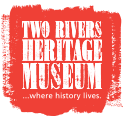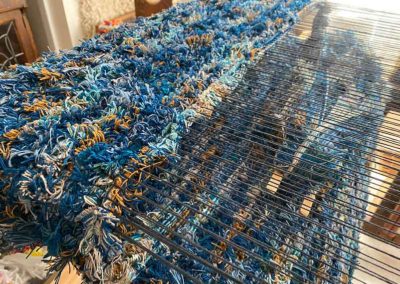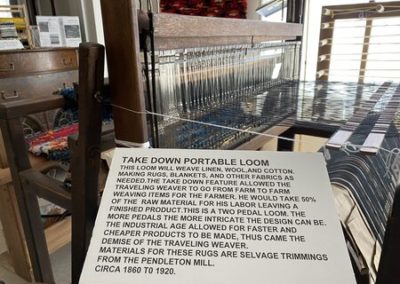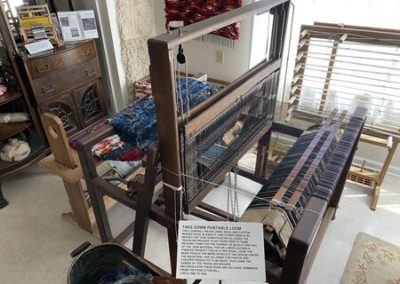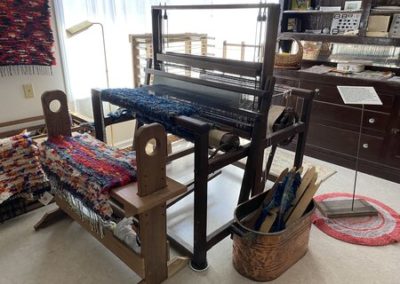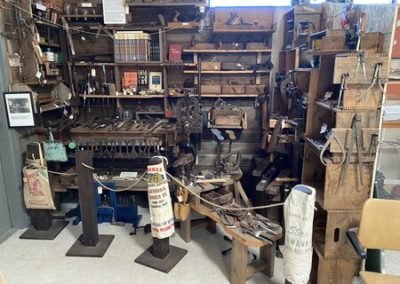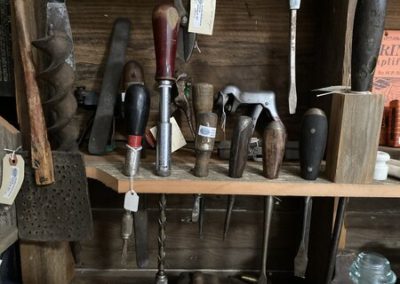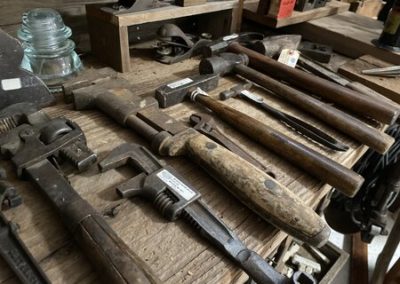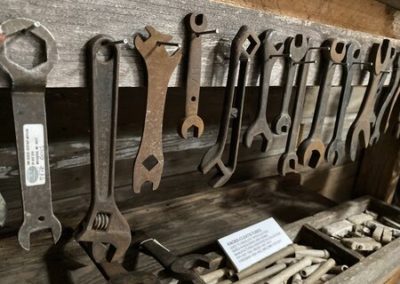Popular Exhibits
Textiles
The dictionary defines textile as “fabric” or “raw material used for making fabrics”. Our display includes raw materials, tools, accessories and many handmade items.
You will see an antique weaving loom that was donated to the Museum as a pile of unrecognizable “sticks” and has been restored to a working loom that demonstrates the process used during the late 1800’s to the 1930’s. This “traveling” loom is set up to make rag rugs, the first floor covering made by the North American colonists.
For those in a new land, every scrap of fabric was precious and nothing went to waste. Scraps of fabric would be torn into strips, connected together, and then rolled into a ball to be braided, crocheted, knitted, woven, knotted or loomed into rag rugs. Our current rug material was supplied by the Pendleton Woolen Mill (our neighbor across the parking lot) and is called selvage. This selvage is created during manufacture of Pendleton Blankets when the edges of the blankets are trimmed for finishing.
This loom came to us in pieces and required the collaboration of a weaver, a woodworker, and a retired Pendleton Loom Maintenance Supervisor to assemble and set up for weaving.
Hand Tools
We invite you to take a step back into our local history through the lens of our HAND TOOLS exhibit.
Tool shops, sheds, or cribs came in all sizes and were outfitted to fill the needs of the period and individual. Some were quite simple and basic, while others would have a wide range of tools from shoe repair to blacksmithing. It was a time when do-it-yourself was a necessity because early settlers typically lived in remote areas where “running to the store” for supplies was not an option. Many times the required tool had to be created before it could be used to build and maintain the family farm.
Our Hand Tools exhibit is a view into an early 1900s tool shed, and features an extensive collection of the woodworking, cobbler, mechanical, and special purpose tools that were essential to daily life in Camas and Washougal.
